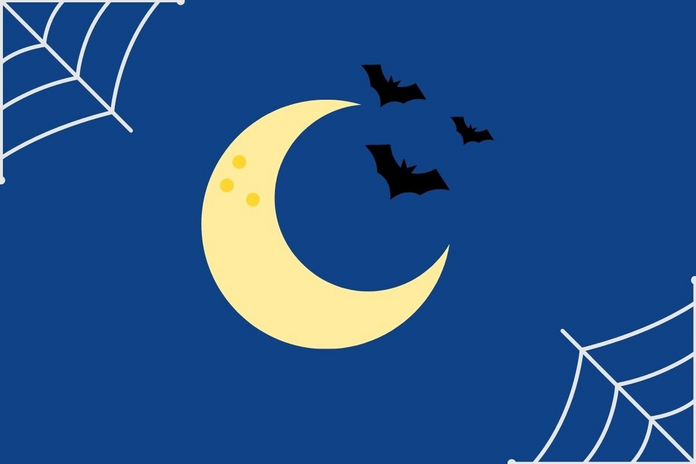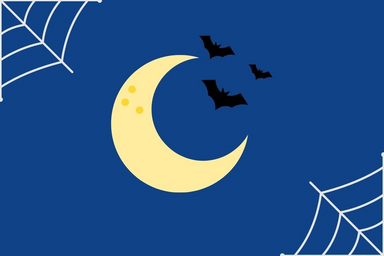The next full moon is coming, and this one is on Halloween. If the full moon didn’t already make everything feel a little off, it’s bound to this time around, right? A full moon on Halloween feels like a sign to stay inside, avoid black cats and ladders and not try anything new. Full moons have been known to bring about spikes in weird behavior, psychotic episodes, suicide, violence, crime and, of course, some classic cryptid activity (i.e. werewolves and vampires).
It’s a pretty widely known “fact” that full moons make people act a little crazy, but is that actually true? And where did that idea even come from?
Well, it’s no new idea. The full moon has been thought to make people “crazy” for a very long time. The term “lunatic,” which was often used to describe someone with mental health issues, is derivative of the Latin word “luna,” for moon. Specifically, it comes from the Latin word “lunaticus,” which means “Moonstruck.” So clearly this idea goes back a long way— thousands of years.
Both Aristotle and Pliny the Elder believed the full moon to cause epilepsy and madness, according to the BBC. Even the father of modern medicine, Hippocrates, believed in this notion. He once said, “one who is seized with terror, fright and madness during the night is being visited by the goddess of the moon.” But is there any real basis for this belief?
The main argument for the moon affecting human behavior is surprisingly scientific. The moon’s gravitational pull on the Earth controls the tides of the oceans— we know that much for a fact. As it circles the Earth and rotates, the moon’s force varies, which in turn changes how the tides move. Humans are made of up to 60 percent water. So, if the moon’s gravitational pull affects the massive bodies of water on the face of the Earth, why would that not translate to human bodies, considering they are made up primarily of water themselves? This is the most popular argument for why the full moon affects humans, and it seems to make perfect sense.
Except it doesn’t work like that. Not at all, really. On such a small scale, the moon’s gravitational pull has relatively no effect on humans and their behavior. Objects on earth have more effect on each other than objects in space do on humans. According to the Farmer’s Almanac, astronomer George Abell noted, “a mosquito sitting on your arm exerts more gravitational force on your body than the moon does.” Bummer.
There have also been many studies done on moon patterns and effects on human behavior, but none have been able to show clear causation to any of the common superstitions.
So, science disproves the idea that the full moon makes people act crazy or out of the ordinary. Then why do so many people still believe in this idea? This could be due to an idea called “confirmation bias.” This concept means that people tend to notice patterns or recognize information that coincides with existing beliefs they hold. In application, this means that when you expect people to act weird during a full moon, you’re going to notice people acting weird. When in reality, people are weird all the time. But since we are culturally taught that the full moon causes this weirdness to spike, people are naturally going to perceive that.
Hopefully, this calms your nerves about this year’s full moon on Halloween. You don’t have to stay locked up in your room all night in fear of the cosmos unleashing bad luck and weirdness into your life. Science says it’s all a bunch of superstitious folklore, but if you believe in anything beyond that, then you could still be in for some good old fashioned Halloween spookery.



